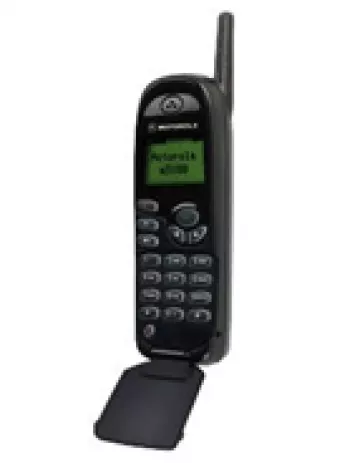
Overview of Motorola C250
The Motorola C250, released in the second quarter of 2003, represented a significant offering from Motorola in the era of early feature phones. During a period when mobile technology was rapidly evolving, the C250 catered to consumers looking for a reliable and straightforward device. With its classic design and basic functionalities, it served as a practical communication device, especially for those who prioritized call and text features over the emerging trend of multimedia functionalities.
Design and Build
The Motorola C250 features a compact and lightweight design typical of early 2000s mobile phones. With dimensions measuring 101 x 42 x 19 mm and a weight of just 80 grams, it was highly portable and convenient for daily use. The phone's body was crafted with durability in mind and came in three colors: Black, Blue, and Indigo, allowing users a modest degree of personalization.
Display
The C250's display comprises a CSTN screen capable of showing 4096 colors. Although modest by modern standards, this was a competitive feature at the time, providing users with a decent visual interface for navigating through menus and reading text messages. The screen resolution was 96 x 65 pixels, which, combined with the display type, ensured basic clarity for the phone’s functionalities.
Network Capabilities
In terms of network support, the Motorola C250 was designed to operate on GSM 900/1800 bands, providing sufficient coverage for most users in different parts of the world. It supported GPRS Class 8 for basic data services, though it did not support EDGE technology, which was emerging at the time for faster data transfer speeds.
Battery Life
Equipped with a removable Li-Ion 750 mAh battery, the Motorola C250 boasted a commendable battery life, offering up to 210 hours on standby and up to 5 hours of talk time. This was efficient for the phone’s basic operations and maintained the importance of battery longevity, which was a crucial consideration for users at the time.
Connectivity and Additional Features
The Motorola C250 lacked many of the connectivity features common in mobile devices today. It did not support Bluetooth, WLAN, or infrared connectivity, focusing instead on essential communication features. The phone utilized a proprietary USB connection for charging and data transfer. For entertainment, it included three preloaded games: MotoGP, AstroSmash, and Snood21, providing users with some recreational options.
Sound and Alerts
Sound capabilities on the C250 were quite basic. It did not feature a loudspeaker or a 3.5mm audio jack, and the alert system was primarily based on vibration and downloadable polyphonic ringtones. This simplicity reflected the device’s focus on essential mobile functions rather than multimedia capabilities.
Operating System and User Interface
Running on a rudimentary feature phone operating system, the Motorola C250 offered a straightforward user interface tailored to its core functionalities. It supported basic messaging through SMS and EMS 5.0, and its WAP 1.2.1 browser allowed for minimal web interactions. Although it lacked Java support, the device's operating system was user-friendly and easy to navigate.
Memory and Storage
Storage on the Motorola C250 was strictly limited. The device did not support external storage expansion via a card slot, and its internal memory was designed to accommodate the storage of 100 phone book entries, along with call records comprising 10 dialed, 5 received, and 5 missed calls. While limited by today's standards, this capacity was typical for early feature phones.
Market Position and Legacy
The Motorola C250 sat comfortably within the early 2000s market landscape as an entry-level phone that provided essential communication features without the complexities or costs associated with more advanced devices. As technology rapidly evolved, the C250 became obsolete as smartphones with enhanced functionalities took precedence. However, it remains a nostalgic symbol for many users who recall the early days of mobile communication.
Conclusion
Despite its basic nature, the Motorola C250 was a reliable device that met the foundational needs of consumers in its time. It highlighted the transitional phase in mobile technology from simple communication devices to the complex smartphones we are accustomed to today. For collectors and enthusiasts, the C250 represents an era where functionality was king, and the simplicity of design ruled the mobile market.
Key Features of Motorola C250
- Supports GSM 900 / 1800 bands
- Compact and lightweight design with dimensions of 101 x 42 x 19 mm and a weight of 80 g
- CSTN display capable of showing 4096 colors
- Phonebook capacity for up to 100 contacts
- Battery life with standby time up to 210 hours and talk time up to 5 hours
- Removable Li-Ion 750 mAh battery
- Available in 3 colors: Black, Blue, Indigo
- Includes popular games: MotoGP, AstroSmash, Snood21
Disadvantages of Motorola C250
- Lacks EDGE support, limiting data speeds to GPRS class 8.
- Display is of low quality with only 4096 colors and 96 x 65 pixels resolution.
- No camera available.
- Does not support external memory card slots.
- No loudspeaker feature.
- No 3.5mm headphone jack.
- Lacks modern communication features including WLAN, Bluetooth, positioning, and radio.
- Uses a proprietary USB connection, which can limit compatibility with other devices.
- Limited phonebook capacity with only 100 entries.
- Limited call logs, storing only 10 dialed, 5 received, and 5 missed calls.
- No Java support for additional applications.
- The model has been discontinued.

View Also
More Phones
All Rights Reserved +14266 Phones © Mobilawy 2025

























